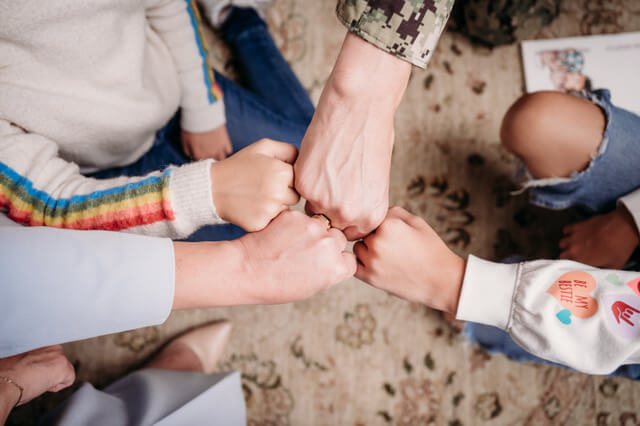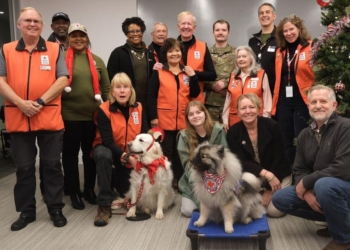Troubling reports of military spouse loneliness, post-pandemic social isolation, and the rising number of military family deaths by suicide aren’t the only concerns within the military community. However, these alarming issues are ones Crystal Bettenhausen-Bubulka, a Navy spouse and clinical social worker, felt needed immediate action.
This is why, in June 2024, Bettenhausen-Bubulka founded Strength in Service.
Strength in Service provides resources and mental health support for military members and their families, as well as support military spouses entering the social work field. The organization advocates for social health as a key factor in eradicating loneliness and isolation in military communities.
“Strength in Service focuses on the power of connection and community — our foundation. We provide therapy that builds emotional resilience, offers strategies for navigating uncertainty and strengthens bonds within families and communities,” Kari deLongpre, associate social worker, explained.
Wildfire relief and navigating trauma
With their headquarters in Coronado, California, and their advocacy reaching worldwide, Strength in Service recognizes the need for community-building initiatives to create lasting bonds and resilience. The nonprofit most recently aided service members and their families in California during the wildfires, but deLongpre explained that their work has only just begun.
“While immediate support is crucial, the long-term emotional well-being of military families depends on ongoing, meaningful connections that help them feel grounded and supported,” she said.
Strength in Service addresses a range of mental health challenges within the military community, with many extending beyond natural disasters.
“Our long-term vision includes not just disaster relief, but the creation of environments where military families can strengthen relationships, find consistent support and build resilience long before the next crisis hits,” deLongpre said.
By promoting evidence-based interventions and expanding access to support services, Strength in Service’s work focuses on creating meaningful change in the social fabric of military life. They specifically address issues such as loneliness, grief and disconnection.
“Military families navigate trauma, grief and high-stress situations, not just during disasters like wildfires but as a constant part of military life,” deLongpre said. “When disaster strikes, these stressors are compounded.”

Resiliency fatigue and rebuilding emotional resilience
While the stigma around seeking mental health is not unique to military culture, it is a significant barrier, especially since military families are expected to be resilient. Unfortunately, these heavy expectations often bring resiliency fatigue.
“The demand for strength can be overwhelming … strong families and strong service members are critical to mission readiness, making it imperative to address these systemic gaps and ensure military families receive the comprehensive support they need,” deLongpre said.
She explained that when families feel supported — a key part of Strength in Service’s mission — they are more equipped to process trauma and rebuild emotional resilience. Strength in Service wants to meet people where they are. deLongpre shared that it’s profoundly fulfilling to see families thrive even in the face of crisis.
“Whether it’s immediate crisis management, ongoing therapy or community connection, we tailor our services to provide the most effective help,” deLongpre said. “One of the most powerful moments is when we help individuals and families reconnect with their sense of hope and purpose.”



























